We kindly inform you that, as long as the subject affiliation of our 300.000+ articles is in progress, you might get unsufficient or no results on your third level or second level search. In this case, please broaden your search criteria.
Author analyzes comparative experience in court specialization as it is commonly recommended as an important justice reform initiative to improve efficiency and quality of the system. The comparative experience and practice do not show clear link between specialization and successful judicial systems. Studies have shown that specialization can be helpful in improving efficiency in more complex cases that require special expertize, such as in bankruptcy, intellectual property rights or business cases. The studies also pointed some challenges. Allocation of additional resources for handling business cases can lead to the perception that a court provides preferential services to the business community, or special courts have been created when the case load did not actually justify the additional investment. In addition, judges who work on only one type of case may develop narrow expertise that may limit their focus. Author provides overview of the comparative practices related to the specialized commercial courts and variations in specialization models.
More...
In this paper, author provides overview of the importance of monitoring judicial performance, as well as development of approach that judicial independence includes accountability of the judicial system for achieved results. Monitoring and evaluation of judicial performance from the aspects of efficiency, quality and access to justice is relatively new trend that is gradually developed and enhanced, as a request of society and citizens for rational budget execution. Author analysed different models of judicial performance measurement that are developed at the national level (United States of America and the Netherlands), as well as within regional organizations such as Council of Europe (European Commission for the Efficiency of Justice) and European Union (EU Justice Scoreboard). Separate chapters are devoted to Rule of Law Index and judicial functional review methodology. Author presented positive experience of Serbian justice system and introduction of rewards program for achieved performance results.
More...
The author analyzes experience in the vetting of the judiciary as a tool used to regain trust in the justice system. Special focus is put on Serbia and Albania experience. The comparative experience and practice do not show a clear link between vetting process and public trust in the judiciary. The author analyzed the importance of a common understanding of reasons for vetting process as well as preparatory activities for its implementation – Constitutional ground, selection of proper institution, including the establishment of ad hoc bodies, proper timeframe and administrative capacities to implement the whole process. In addition, communication with the public and professional community is of utmost importance to ensure support throughout vetting. The author provides an overview of the comparative practices related to the models of vetting conducted in Serbia in 2009 and ongoing vetting process in Albania. Although there are delays in implementation in Albania, it is obvious that Albania legislators learned from Serbian experience and included tools to ensure transparency of the vetting.
More...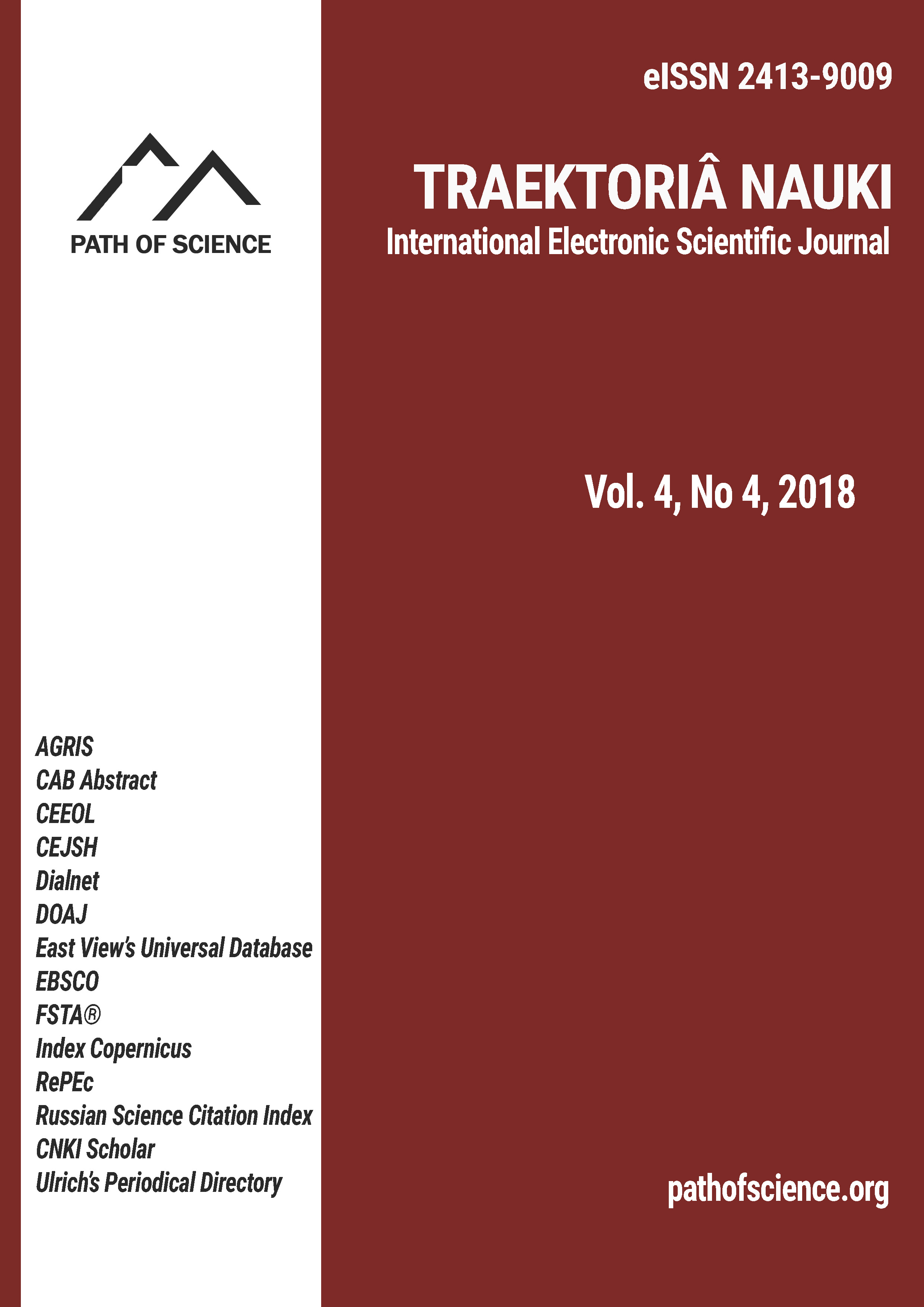
In the article on the basis of the methodology of system analysis the legal nature and sources of legal regulation of the legal regime of official information in Ukraine in the conditions of adaptation of Ukrainian legislation to the legislation of the European Union are considered. A comparative legal analysis of official information in the public-law and private-law spheres in the context of legal regimes of restricted information, confidential information and information classified as state secrets has been conducted.
More...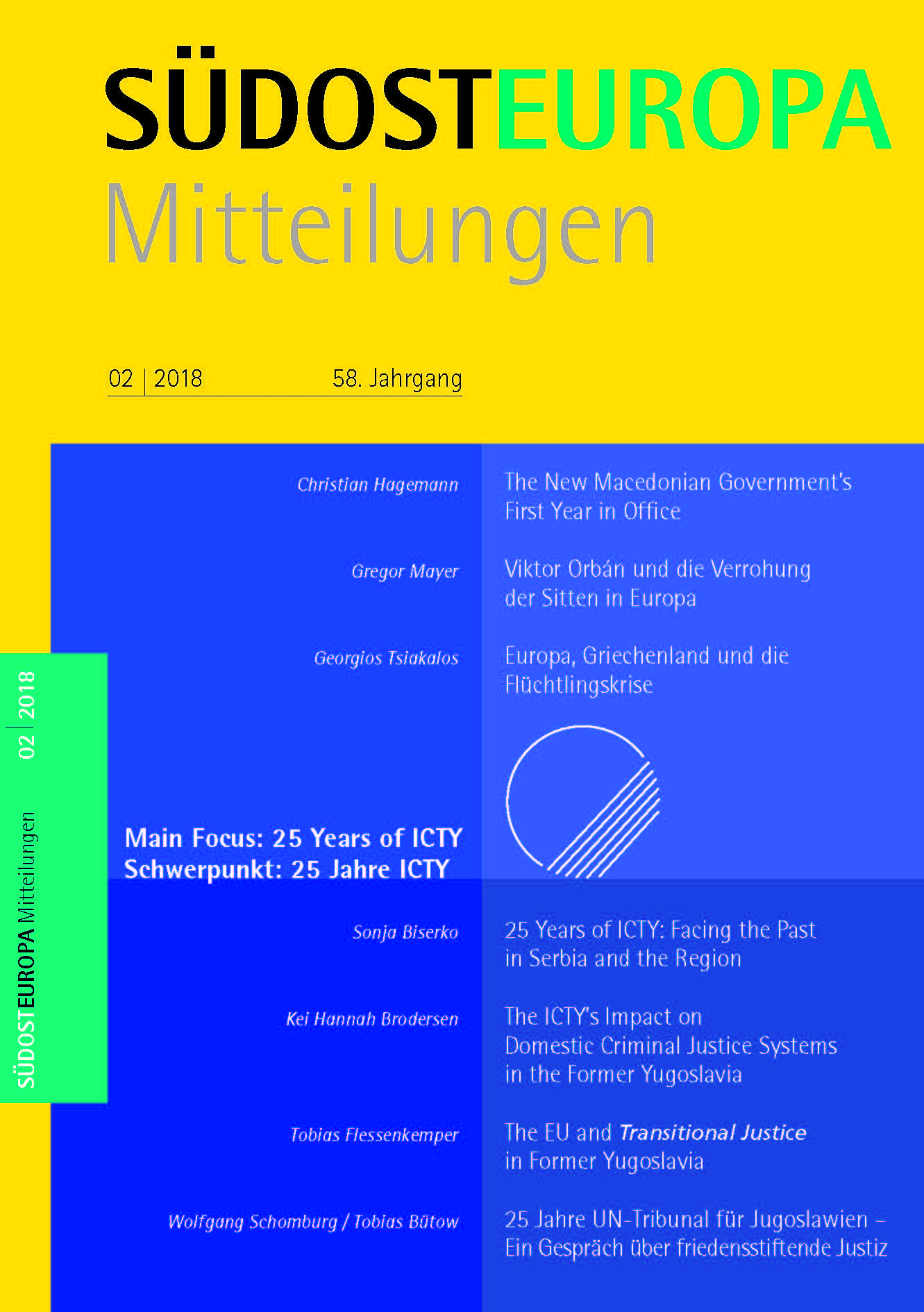
The article addresses the impact of the International Criminal Tribunal of the former Yugoslavia (ICTY) on the region, with the main focus put on Serbia. Although the Tribunal established the facts about crimes committed – executioners were identified, some of the key political, military and police inciters and perpetrators have been put on trial and sentenced – Serbian society is still in deep denial. The ICTY was not equipped with mechanisms that would have made Serbia (and other countries in the region as well) duty-bound to deal with its legacies. Serbian elites were not able to refrain from Milošević’s project because they were largely par tof it as well. Instead, elites are engaged in discrediting the Tribunal’s legacy and revision of history of the recent past, including the 20th century. History is perceived only from the victim’s view point which blocks a serious debate about the past. Although new avenues have been opened to Serbia – towards accession to the EU – Serbian nationalism has not been defeated yet. Without objectified political and social context andwithout explaining the role Serbian elites have played, Serbia’s aspirations will be hampering regional development. The EU in its relations with Serbia should focus on a radical change of Serbia’s value system.
More...
The article discusses how the European Union approached – first slowly and hesitantly, then ambitiously and lately with lowered expectations – transitional justice in the countries of former Yugoslavia. Recently, in its 2016 Global Strategy, the EU moved further away from the issue by reframing international and transitional justice into concepts of societal resilience. Starting with the establishment of the International Criminal Tribunal for the former Yugoslavia (ICTY) in 1993, three loosely defined phases of EU engagement can be identified: 1) emerging support for transitional justice mechanisms between 1991 and 1999; 2) the period when the EU was aiming to shape the region and the transitional justice discourse, leading to spent ambition (1999-2014); and 3) lowered expectation inside and outside the EU from 2008 onwards.
More...
After having conducted proceedings concerning all 161 indictees, the ICTY finally ceased to exist in December 2017. Through its vast case law and court practice, the ICTY has developed international criminal law and procedure like no other court before. The Tribunal’s footprints will leave a long-term impact on the domestic criminal justice systems of Bosnia and Herzegovina, Croatia, and Serbia. The ICTY significantly influenced transitional justice in all three countries by having triggered national war crimes proceedings. It helped establish domestic specialised war crimes institutions and catalysed their initial work through various support programmes. At the same time, the Tribunal also influenced criminal law reforms, both concerning Substantive and procedural criminal law. Amongst other sources, its case law forms the basis for the codification of international crimes in the domestic criminal codes, and domestic criminal procedures were aligned to the ICTY’s procedure and court practice. Domestic courts frequently follow the Tribunal’s jurisprudence, both on substantive and on procedural legal issues. Ist practices are also taken up in the realm of victims and witness protection and support. Importantly, the ICTY’s impact has over the years transcended the realm of war crimes and spilled over into the overall criminal justice systems.
More...
The International Criminal Tribunal for the former Yugoslavia (ICTY) has been part of numerous debates and misunderstandings since its creation 25 years ago. An interdisciplinary and intergenerational conversation with the first German UN judge in criminal matters, Wolfgang Schomburg, who worked at the ICTY between 2001 and 2008, addresses the challenges, merits and legacy of this first transnational court after Nuremberg and Tokyo.The insider-perspective of a decision maker, eyewitness and internationally renowned Scholar of international criminal law meets the questions of historiography and political science, researching post-war societies and coming to terms with the past, thus enabling new perspectives beyond politicized debates. Discussing international norms of substantive criminal law, rulesof procedure and evidence, victim protection, acquittals of alleged perpetrators, outreach and the future of international criminal law, the authors try to approach the interdisciplinary question how justice and truth finding endeavors can contribute to peace.
More...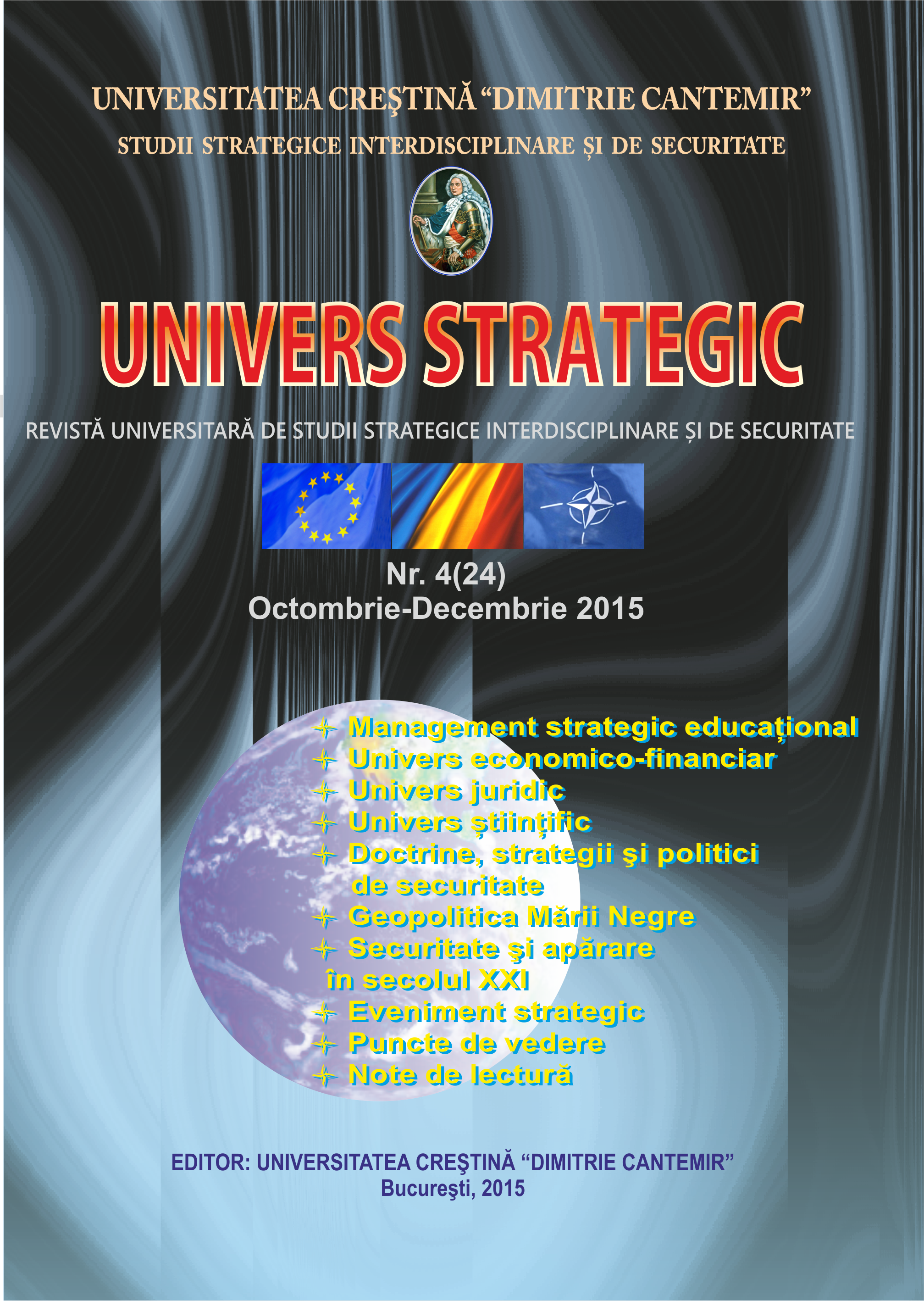
This publication has been dedicated to a multidimensional approach of state and law in general as social phenomena found in the process of transition from one stage to another. The subject is certainly actual for Moldova, which, along with other former socialist countries, is crossing difficult times, trying to build another e model of state and a democratic legal system. An important role in this research have the specific state opportunities and the law in transition, the types of transitions and the impact of civil society and ultimately, the purpose of this process is very important in this publication, the answer to the question-"Where will we post-transitionally arrive? ".A separate section is dedicated to the characteristic features of the state transition and the legal system in Moldova, pointing out our state transition steps and the best known achievements in law.
More...
Finding the truth is considered by many people envolved in a lawsuit as the ideal of justice, beyond punishing those who are guilty for committing crimes, the obligation to recognize the subjective rights’ violation or the compensation for damages. In certain situations, a partial truth becomes similar to injustice.The legislators have turned the finding of truth into a fundamental principle of law, quite abstract in comparison to formal, direct norms, with provisions that require a minimum margin of interpretation. Taken in this formalism, law scholars, judges and lawyers, especially after a long period of time, may no longer relate to fundamental values, including the finding of truth. The compromised truth leads to a misapplication of the law and, implicitly, to a vicious court decision on litigation.One af the arised question is whether the legislator himself should be mindful of the truth in the law-making process. The approaches may be diverse: substantiation of norms, simplification of procedures, systematization of law towards the predictable and understandable solution to legal conflicts.
More...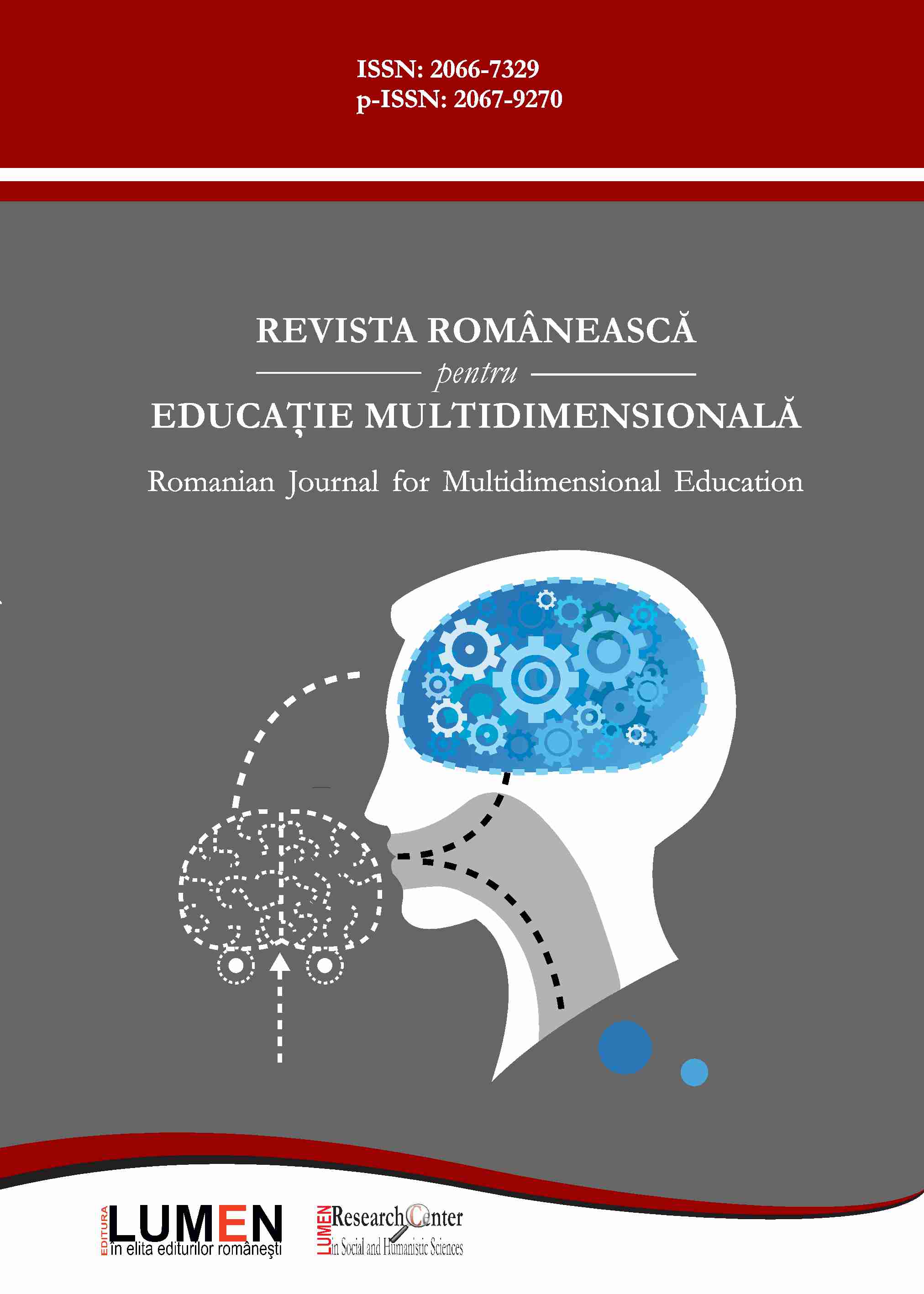
A recent strong thesis questioned actors in the field (teachers, college principals, teaching assistants, students, senior education advisors) on the question of aid as a means of democratization of the school, success of more destitute. Four positions emerged with institutional, pedagogical and family recommendations. They all express practices whose aims are the fight against failure, school dropout and inequalities. The theoretical framework is part of the work of Bautier and Rochex, (1997), and Broccholichi (1995), Meirieu (2001). The methodology consists of thirty-nine semi-structured interviews and the treatment is a thematic analysis of content. The originality of the study is the reflection at better conditions for useful aids outside the classroom.Thus, through a deductive approach, we have drawn some conditions for the help to be useful to students outside the classroom: to improve the diagnosis of school difficulty; target aid; put coherence in the actions; promote student volunteering with complementary modules based on a skills framework; reform the tasks. The success of aids also depends on changes to be made outside the classroom; reorganize the personalized help; focus on fundamental learning and diversify teaching methods: set up complementary modules with a reference system of skills; avoid the multiplication of aids; change the structure of the aid; integrate help into the teaching profession; train the actors of the helpers; change school rhythms, really involve families; evaluate the aid Strengthen the partnership between the aid and external actors.
More...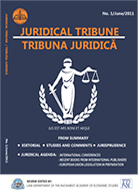
The study aims to analyze the amendments made by the Administrative Code to the central specialized administration, in general and to the Ministry of National Education in particular. The adoption of the Administrative Code is a legislative event that will undoubtedly influence the evolution of the central, local and local public administration in general and of each of its constituent authorities in particular. Last but not least, it will bring benefits to the work of the state and the lives of citizens. A special analysis will give direct influence to the Ministry of National Education, given the significance of the public service it manages, that of education, in all its forms permitted by the Constitution: state, private and confessional. The way in which this central specialized authority achieves its competence influences not only the present, but also the future of a nation, through the institutionalized forms of education, preparing future generations.
More...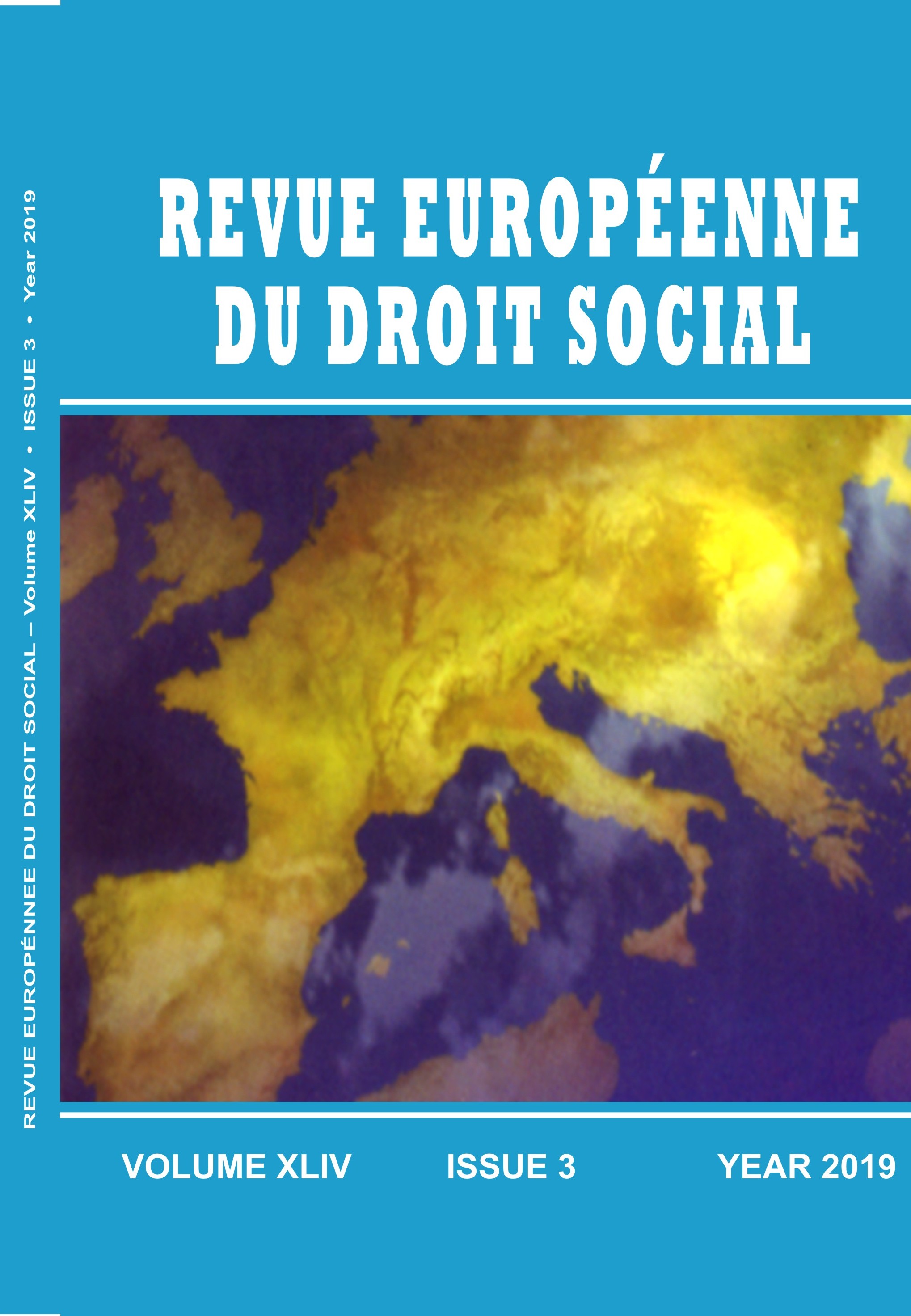
n this article the author expresses his opinions on the role of labor lawyers in the new economic conditions, expresses possible actions and considerations ontraditional definitions of Labor Law.
More...
The adoption of Act 262/2001 Coll. on Participants of the Resistance against Communism seven years ago not only opened the way to appreciate those who pro-actively worked against the communist regime but also provided an insight into hundreds of human fates and attitudes to life. The Institute for the Study of Totalitarian Regimes has contributed a great deal to this interesting work, even though many have no idea in what specific ways.
More...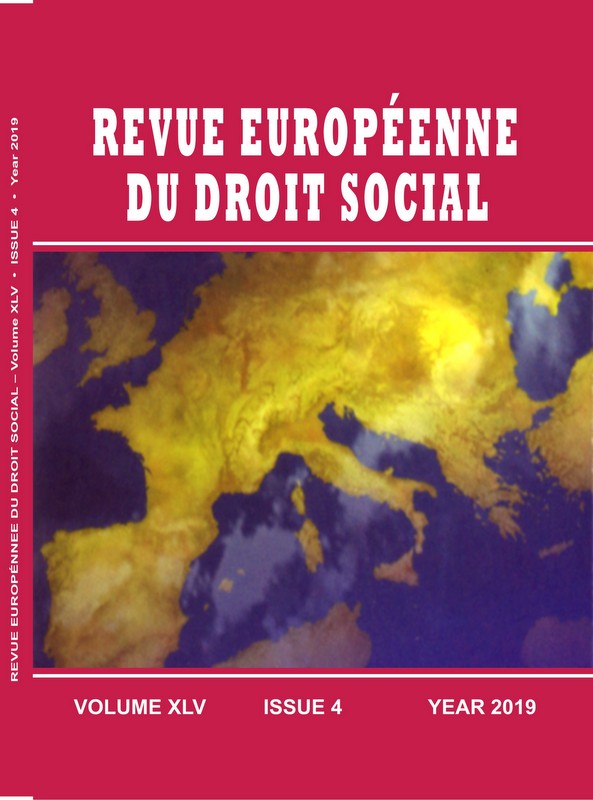
In the dismemberment process of the Soviet Union, the Republic of Moldova declared its independence on 27 August 1991. Having aspirations for European values andbeing in a situation where, starting with 1990, the territory located on the east bank ofDniester river is under de facto control of the separatist regime from Transnistria, the newRepublic lays the foundations for an agreement with the Organization for Security andCooperation in Europe (OSCE), one of the most important security organizations on theinternational scene. The article analyzes how the OSCE field Mission has supported theevolution of the State’s democratization and compliance with human rights, by ensuring theright to a fair trial and ensuring the conditions of detention in prisons. The conclusion is that,although important steps have been taken towards Europe, the current context makes theaccession of the Republic of Moldova to the European Union unlikely.
More...
Even though the process of transition from a centrally planned to a market economy in Serbia started in the early 90's of the last century – domestic transitional discourse becomes increasingly predominant only after the changes that occurred on the 5th of October 2000. Structural changes that were initiated have influenced an increasingly widespread scientific and research debate on globalization and transitional processes, which remains relevant to this date. In contrast to the prevalent affirmative views on globalization processes in the first decade of the 21st century, the second decade was, in terms of these discussions, characterized more by critically-minded debates on the consequences of globalization. Within these debates as a "loyal companion" of the notion of globalization, the notion of sovereignty is often used, especially in that "post-historical" context of the weakening of the state as an institution. Given that these debates continue to be considerably present within domestic social sciences and humanities research platforms, it seems that the multidisciplinary approach to these concepts could shed additional light on their nature and point out to the possible inconsistencies and inadequate use. Therefore, in the focus of the analysis is the problem of the relation between the concepts of sovereignty and globalization, which is observed both with reference to different concepts in the theoretical, constitutional and international legal doctrine, and to the already existing tendencies in domestic sociological, economic and political debates.
More...